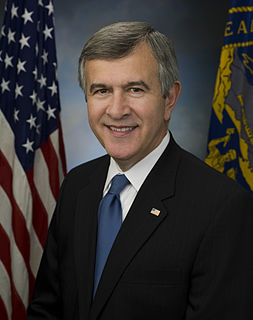A Quote by Mike Johanns
Science is the international language, so when we are able to convince countries that good decision-making for human health and animal health is based upon science, that's a real success story for us.
Related Quotes
We are living in a society that is totally dependent on science and high technology, and yet most of us are effectively alienated and excluded from its workings, from the values of science, the methods of science, and the language of science. A good place to start would be for as many of us as possible to begin to understand the decision-making and the basis for those decisions, and to act independently and not be manipulated into thinking one thing or another, but to learn how to think. That's what science does.
Medicine is the science by which we learn the various states of the human body in health and when not in health, and the means by which health is likely to be lost and, when lost, is likely to be restored back to health. In other words, it is the art whereby health is conserved and the art whereby it is restored after being lost. While some divide medicine into a theoretical and a practical [applied] science, others may assume that it is only theoretical because they see it as a pure science. But, in truth, every science has both a theoretical and a practical side.
I'm not into animal rights. I'm only into animal welfare and health. I've been with the Morris Animal Foundation since the '70s. We're a health organization. We fund campaign health studies for dogs, cats, lizards and wildlife. I've worked with the L.A. Zoo for about the same length of time. I get my animal fixes!
Perhaps one of the most important things you can do for human beings is wean them off an animal-based diet. It hardens the arteries and runs up our health-care costs. The last thing a poor person can afford is a heart attack or cancer or a stroke. And that's all linked to a meat-based diet. I think animal liberation is human liberation.
There can be no real growth without healthy populations. No sustainable development without tackling disease and malnutrition. No international security without assisting crisis-ridden countries. And no hope for the spread of freedom, democracy and human dignity unless we treat health as a basic human right.
































